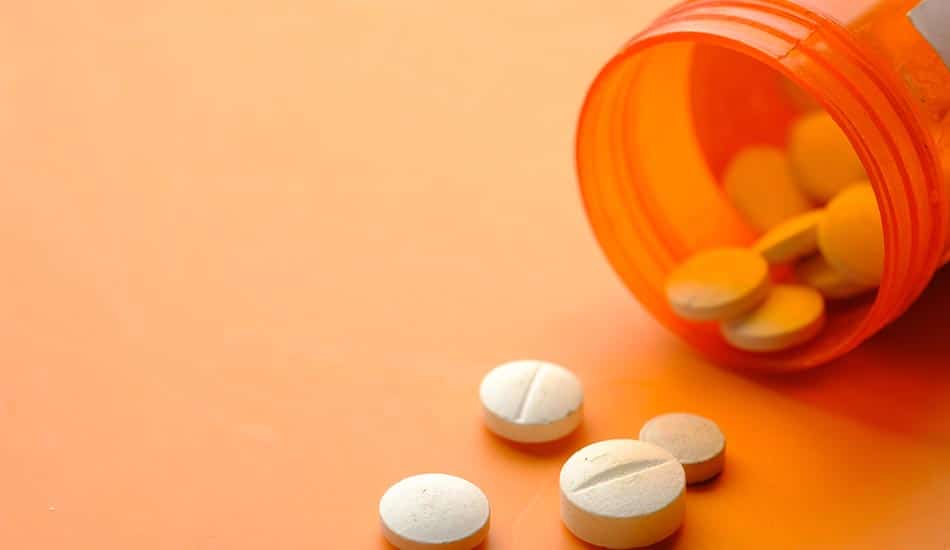- Home
- Treatment
Treatment Designed for You.
Get in touch with Absolute Awakenings today and begin your journey to long-term healing & recovery. - What We Treat
Get help today, start your journey!
An Experience in Healing
Get in touch with Absolute Awakenings today and begin your journey to long-term healing & recovery. - About
The Rehab You've Been Looking For
Get in touch with Absolute Awakenings today and begin your journey to long-term healing & recovery. - Tour
- Resources
Resources
Why Evidence-Based Therapy Beats “Willpower” For NJ Addiction
February 27, 2026Step-by-Step Alcohol Recovery in Denville Accredited Rehabs
February 25, 2026How NJ Drug Addiction Programs Target Root Causes Effectively
February 20, 20265 Research Backed Therapies in Absolute Awakenings’ Multifaceted Care
February 13, 2026Don't Wait Another Day.
Get in touch with Absolute Awakenings today and begin your journey to long-term healing & recovery. - Admissions
The Rehab You've Been Looking For
Get in touch with Absolute Awakenings today and begin your journey to long-term healing & recovery. - Contact
(866) 627-0196
3000 NJ-10, Morris Plains, NJ 07950
admissions@absoluteawakenings.com
Schedule a Tour Now
Get in touch with Absolute Awakenings today and begin your journey to long-term healing & recovery.
Begin Your Journey Now
Begin Your Journey Now
- Home
- Treatment
Treatment Designed for You.
Get in touch with Absolute Awakenings today and begin your journey to long-term healing & recovery. - What We Treat
Get help today, start your journey!
An Experience in Healing
Get in touch with Absolute Awakenings today and begin your journey to long-term healing & recovery. - About
The Rehab You've Been Looking For
Get in touch with Absolute Awakenings today and begin your journey to long-term healing & recovery. - Tour
- Resources
Resources
Why Evidence-Based Therapy Beats “Willpower” For NJ Addiction
February 27, 2026Step-by-Step Alcohol Recovery in Denville Accredited Rehabs
February 25, 2026How NJ Drug Addiction Programs Target Root Causes Effectively
February 20, 20265 Research Backed Therapies in Absolute Awakenings’ Multifaceted Care
February 13, 2026Don't Wait Another Day.
Get in touch with Absolute Awakenings today and begin your journey to long-term healing & recovery. - Admissions
The Rehab You've Been Looking For
Get in touch with Absolute Awakenings today and begin your journey to long-term healing & recovery. - Contact
(866) 627-0196
3000 NJ-10, Morris Plains, NJ 07950
admissions@absoluteawakenings.com
Schedule a Tour Now
Get in touch with Absolute Awakenings today and begin your journey to long-term healing & recovery.
- Home
- What We Treat
- Substance Abuse
- Suboxone
Suboxone® Addiction: Signs, Symptoms, Risks, and Treatment Resources
Suboxone® is a brand name for two drugs found together: buprenorphine and naloxone. It is one of the most commonly-used medications in medication-assisted treatment and is prescribed to help people recover from opioid addictions.


What We Treat
We Accept With Most Major Insurance
If you or a loved one is ready to get help but finances are holding you back, give us a call. We can work with your health insurance provider.






Related Topics
Additional Resources for Suboxone® Addiction
Table of Contents
What is Suboxone®?
Suboxone® is a Schedule III narcotic prescribed for the treatment of opioid addiction. Opioids are highly addictive painkillers with uncomfortable withdrawal symptoms. Suboxone® aims to reduce this discomfort by providing a low dose opioid in its place, similarly stimulating the brain.
Due to its brain and nervous system interactions, Suboxone® can lead to dependence and addiction. In 2019 alone, it was reported that around 700,000 people misused this drug.[1]
Street names for this drug include Boxes, Oranges, Sobos, Stops, and Bupes.
Suboxone® Addiction and Abuse
Since Suboxone® is a Schedule III drug, it is considered an addictive substance. Yet, it is not as addictive as Schedule II substances, such as opioid painkillers. However it still targets the same regions of the brain as opioids. This may make it an attractive target for those addicted to opioids.
Signs of Addiction to Suboxone®
Those addicted to Suboxone® may have a runny nose, watery or red eyes, and sweaty skin. Some may have swelling in the limbs, headaches, nausea, and vomiting. These signs may get worse the longer an addiction continues. Cravings and behavioral changes may accompany them.
Effects of Suboxone® Abuse
Abusing Suboxone® can lead to weight loss due to a loss of appetite. A person abusing this drug may have an excess of drug paraphernalia. This includes needles, syringes, and powder from crushed pills. The person may have needle marks on their body from injecting the substance. Some may also have an excess of prescriptions from various physicians, and they may no longer be interested in their usual hobbies or work.
Dangers of Long-Term Suboxone® Use
Taking Suboxone® long-term may alter a person’s brain chemistry. You may no longer feel like yourself, and you may feel depressed or anxious. You may have feelings of social isolation, fatigue, nausea, and constipation. Some also struggle to maintain relationships, keep a job, and stay financially stable. Others experience cognitive decline.
Side Effects of Suboxone®
Some may experience dizziness, nausea, constipation, sweating, confusion, and vomiting. Minor side effects will likely go away on their own.
Many won’t experience any side effects, while others may have severe complications. These include seizures, hallucinations, and heart changes.
If severe side effects arise, seek medical attention right away. More severe side effects may occur when the substance is abused. Mixing the drug with other substances may also worsen side effects.
Statistics on Suboxone® Use, Misuse, and Addiction
More than 41% of psychiatrists and 36% of primary care physicians prescribe buprenorphine to their patients.[2] Many people abuse this substance to get more relief. This may temporarily remedy a person’s withdrawal symptoms. However, persistent Suboxone® misuse may cause other problems to arise.
Can You Overdose on Suboxone®?
Overdosing is more likely when you abuse the substance or mix it with others. This releases the drug’s total dose into your system immediately, and some who overdose go into a coma. They may experience health complications, such as brain or liver damage. Some may die if their bodies are unable to handle the large dosage.
Death is possible if they do not receive medical treatment in time.
Signs and Symptoms of Suboxone® Overdose
Suboxone® is the most popular opioid treatment choice, even when compared to generic buprenorphine.[3] This wide use and availability make it more likely for people to abuse this drug eventually. Common signs of Suboxone® overdose include the following:
- Slow heart rate
- Shallow breathing
- Fatigue
- Coma
- Seizures
- Death
What to do if you suspect someone is overdosing on Suboxone®?
An overdose is a medical emergency. Call for medical help as soon as possible. Acting fast can also minimize the extent of the overdose’s damage and potentially save a life. Stay with the person until medical help arrives.

How is Suboxone® Taken?
Suboxone® is available as a sublingual film. It starts working within 20 to 30 minutes. There are also sublingual tablets that work similarly. Suboxone® misuse involves dissolving the sublingual strips or tablets before injecting them, chewing them, or mixing them with other substances. This allows the drug’s total dosage to be released at once, causing euphoria. The abuse potential is higher when not taken as prescribed.
Mixing Suboxone® with Other Drugs
Mixing Suboxone® with other substances increases the risk of overdose. Mixing Suboxone® with alcohol is especially dangerous. This makes it likely for a person’s heart rate and breathing to slow. This may send the person into a coma or lead to an overdose, which could be fatal.
Cutting Agents Used for Suboxone®
Prescription Suboxone® is not cut with anything. Street Suboxone® may be cut with talcum powder, cornstarch, and other cheap fillers that alter its effects. Some may cut it with opioid medications, benzodiazepines, and similar drugs.
Suboxone® Addiction Treatment
Detox Placement
Detoxing is necessary to get addictive drugs out of your system. The detox process can be dangerous or uncomfortable when done alone. Detoxing in a professional treatment center is much safer and more effective.
In a medical detox, you will be medically monitored to ensure that your health is put first. Medications may help reduce your cravings and prevent serious withdrawal symptoms like heart attack, stroke, and seizures.
Intensive Outpatient Treatment
Those with more advanced addictions may benefit from intensive treatment. It still offers the freedom and the ability to sleep in their own home. Intensive treatment requires extensive therapy and support at the treatment center but the flexibility to balance the other responsibilities in your life, such as your family or job.
This program is best for those who have attempted recovery in the past or completed a higher level of care. Substance use disorder is a continuing issue for many people. Without the right resources, it is easy to relapse.
Outpatient Treatment
Outpatient treatment is a part-time treatment program that allows people to balance their daily lives with their treatment. Patients attend treatment on a flexible weekly schedule that helps them regain their productivity and cope with life’s obligations.
Therapies Used in Suboxone® Addiction Treatment
Therapy plays a substantial role in treatment. You will talk one-on-one with your therapist in private and participate in group therapy.
Cognitive behavioral therapy helps you understand negative emotions. You can better understand why you abuse drugs and how you can stop them. It will also teach you about unwanted thoughts and behaviors and how to stop them.
Motivational interviewing is ideal for those with low self-esteem regarding themselves and their decisions. This therapy helps a person build up their confidence and motivation. This can help them overcome their addiction and avoid relapsing.
Family therapy is useful if a patient’s addiction problems are rooted in their family. It is also useful if a person doesn’t feel supported by their loved ones. It can help the family understand how addiction works as well. This therapy can remedy problems between family members and create a more supportive family unit.
Dual Diagnosis for Co-Occurring Disorders
Because Suboxone® is designed to stop opioid addictions, people may feel defeated if they become dependent. They may feel that there are no more options for them. This can cause depression and anxiety.
When mental health concerns and substance use present together, dual diagnosis treatment is critical for long-term recovery. This holistic approach treats each disorder individually to reduce the risk of relapse and promote lasting recovery.
Suboxone® Withdrawal Management Treatment
On average, Suboxone® addiction treatment lasts approximately 90 days. Detox is a difficult process, but professional treatment can make it easier and safer. Managing your withdrawal with therapy and medication will set you on the path to success.
Drugs Used in Suboxone® Withdrawal Management
Withdrawal treatment includes slowly weaning off Suboxone® and supplementing with other medications. Clonidine is a common medication used to ease a person’s withdrawal symptoms. This may still cause discomfort, but quitting cold turkey is more dangerous.

Amanda Stevens, BS
Medical Content Writer
Amanda Stevens is a highly respected figure in the field of medical content writing, with a specific focus on eating disorders and addiction treatment. Amanda earned a Bachelor of Science degree in Social Work from Purdue University, graduating Magna Cum Laude, which serves as a strong educational foundation for her contributions.
Absolute Awakenings Editorial Guidelines
At Absolute Awakenings, we take information integrity seriously. We have dedicated our resources to ensure that all content published to our blog is medically sound. As such, all content on our blog has been thoroughly reviewed by a doctorate level clinician such as a Medical Doctor, or Psy.D, so that you can trust all of the data we publish.
What We Treat
We Accept With Most Major Insurance
If you or a loved one is ready to get help but finances are holding you back, give us a call. We can work with your health insurance provider.






Related Topics
Additional Resources for Suboxone® Addiction
Find Recovery at Our NJ Suboxone® Rehab Center
Escape Suboxone® Addiction & Find Recovery at Our Suboxone® Rehab in NJ
If you’re ready to overturn the page and begin a new, healthier chapter of your life, our team is here to help you. Contact us today at our New Jersey drug rehab facility, and let’s combat Suboxone addiction together. At Absolute Awakenings, your awakening to a life free of addiction begins here. Allow us to walk by your side on your journey towards recovery.
Remember – hope is only one call away.
Frequently Asked Questions
Does Suboxone® Interact With Other Substances?
Suboxone® negatively interacts with alcohol and many other drugs, like benzodiazepines. Mixing these substances can slow your heart rate to dangerous levels. It may also cause you to pass out.
How Long Do People Have to Take Suboxone®?
When taking Suboxone® to treat opioid addictions, most people require short-term treatment, which is less than 6 months. But those with more severe addictions may take it for a year or more.
What Is the Suboxone® Withdrawal Process?
Going through Suboxone® withdrawals is a difficult task. Withdrawal effects include nausea, vomiting, stomach cramps, and sweating.
Sources
[1] NIDA. 2021, October 15. Buprenorphine misuse decreased among U.S. adults with opioid use disorder from 2015-2019. Retrieved from https://nida.nih.gov/news-events/news-releases/2021/10/buprenorphine-misuse-decreased-among-us-adults-with-opioid-use-disorder-from-2015-2019 on 2023, May 17.
[2] Velander J. R. (2018). Suboxone®: Rationale, Science, Misconceptions. The Ochsner journal, 18(1), 23–29. Retrieved from https://www.ncbi.nlm.nih.gov/pmc/articles/PMC5855417/ on May 17, 2023.
[3] Ling W. (2012). Buprenorphine implant for opioid addiction. Pain management, 2(4), 345–350. https://doi.org/10.2217/pmt.12.26. Retrieved from https://www.ncbi.nlm.nih.gov/pmc/articles/PMC4283787/ on May 17, 2023.
Stories of Hope & Healing
Hear from Our Alumni
A jewel among many local drug and alcohol rehab treatment centers in Denville, New Jersey, the care and treatment options you’ll receive at Absolute Awakenings is second to none. From not knowing if you’ll ever feel in control again to being confident in the path you’re on, we are invested in YOU every step of the way.
Begin Your Journey to Long-Term Healing
Make the Call. Change Your Life.
Yes, You Can Get Your Life Back...
With our trained and compassionate professionals in your corner, freedom can be yours. All it takes is you choose yourself. Choosing a better tomorrow.
© Copyright 2025. All Rights Reserved. AATC.
- Terms & Conditions
- Privacy Policy


